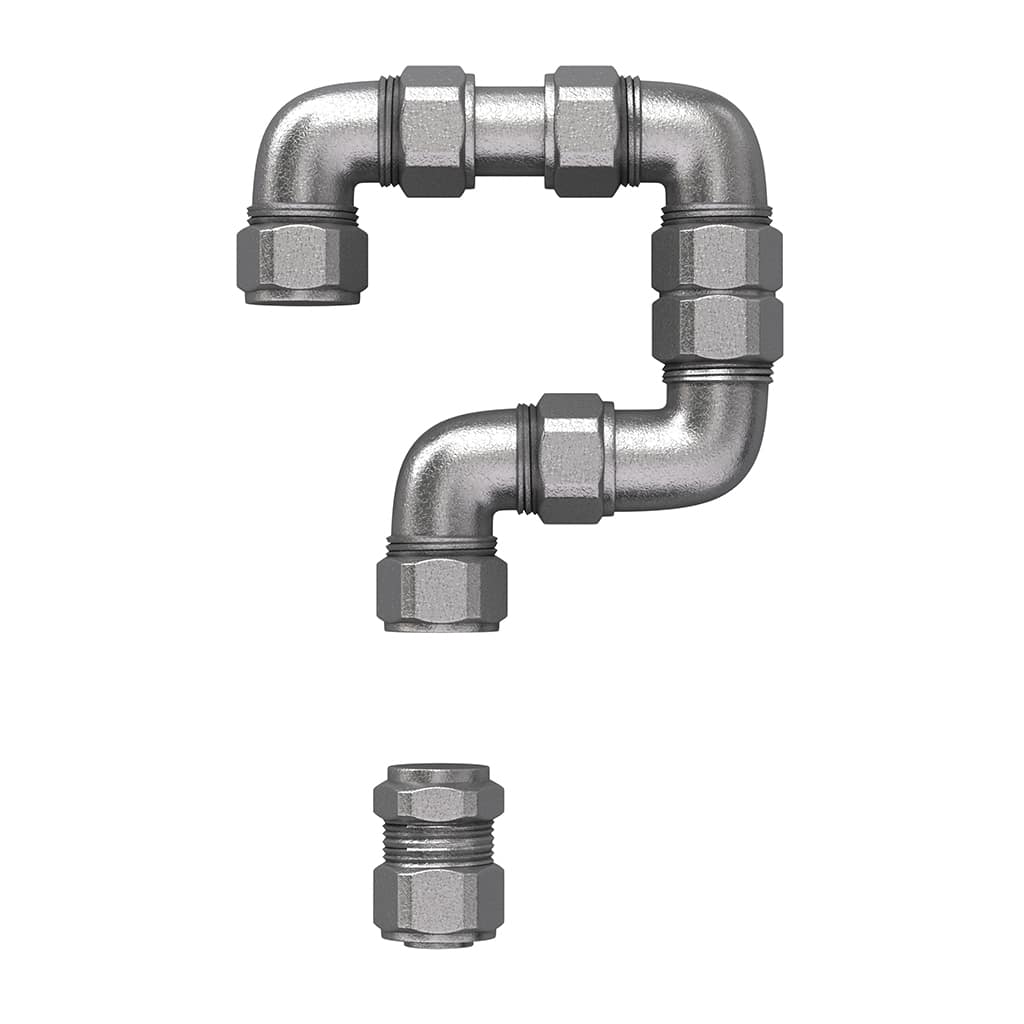
Is It Time For A Plumber To Replace Your Plumbing System? | Myrtle Beach, SC
Photo By Handmadefont at istock
You probably take your plumbing system for granted, but if you think about it more critically, you will notice that it is one of the most integral components of your Myrtle Beach, SC, house. Unless you fetch your water from a nearby river and use an outhouse as your bathroom, then your home’s plumbing system is responsible for supplying your house with fresh water and draining out the wastewater. Of course, your plumbing system is extremely durable, but this does not mean that it will last forever. Indeed, there will come a time when you will need a plumber to help you replace it. However, replacing your plumbing system is quite an involved and expensive undertaking, and you should only consider it when it is the only option to solve the plumbing issue you are facing. Therefore, before you can decide that you need to replace your entire plumbing system, you need to consult a professional. Below are some signs you need to start talking to your plumber about the need to replace your plumbing system.
The Age of Your Plumbing System
Although your plumbing system is extremely durable, it is not designed to last forever. Therefore, there will come a time when you will have to replace it. The lifespan of a plumbing system depends on a number of factors, including the quality of plumbing fixtures and how well it is maintained. For instance, a cast iron plumbing system can last for up to a hundred years, while a galvanized steel plumbing system is expected to serve you for about fifty years. Brass and copper plumbing systems should last between 45 and 50 years. Therefore, it is imperative for you to know when your plumbing system was installed, and if it is approaching its lifespan, you need to consider talking to your plumber about the need to replace it before it can start causing you inconveniences.
Lead and Polybutylene Pipes
Lead pipes were popular in the early 20th century due to their durability. Indeed, they are believed to last for up to a hundred years. However, recent studies have established that lead pipes can leach lead into your clean water. Unfortunately, lead is quite a toxic metal that is known to severely hamper mental development in children. Therefore, it is not something you want to find its way to your drinking water. On the other hand, Polybutylene pipes were popular in the late 20th century. Although they are not deadly, they are too fragile, and therefore, they may force you to call your emergency plumber quite often. Therefore, if an inspection reveals that your home’s plumbing was done using Lead or Polybutylene pipes, it is imperative for you to consider replacing it as soon as possible.
Extensively Corroded Pipes
One of the biggest enemies of your plumbing system is corrosion. Extensive corrosion will cause your plumbing system to leak. Unfortunately, leaks caused by corrosion can lead to low water pressure and even affect the structural integrity of your house. As such, if your house is more than fifty years old, it is imperative for you to ask your plumber to inspect its plumbing system for corrosion, especially if the exposed plumbing fixtures are also showing signs of deterioration, such as stains, pimping, flaking, and discoloration. If your plumbing professional reveals that your plumbing system is extensively corroded, then the most appropriate solution would be to replace the entire system. If the replacement is not done on time, you might end up spending more money than necessary since you might soon be forced to seek more frequent plumbing repairs.
Low Water Pressure
There are many issues that can lead to low water pressure in your house. Therefore, when you are experiencing low water pressure, it can be difficult for you to pinpoint the exact cause of the issue. Some causes of low pressure include the buildup of mineral deposits on the walls of the pipes, leaks, and extensive corrosion. But water pressure in your house can also be caused by issues with your utility company’s supply line. For you to find out what the issue might be, you need to consult a professional. The plumber will diagnose the issue and advise you accordingly. If the low water pressure is due to leaks resulting from pipe corrosion, then you may have to replace the entire plumbing system, or risk putting the structural integrity of your house at risk of getting compromised due to dampness.
Discolored/Rusty Water
The water coming from your faucets should be colorless and tasteless. Unfortunately, as your plumbing system ages, rust along the waterline can make the water look and taste rusty. Although rust is not a serious health hazard, you definitely do not want to drink water with a brown color and a metallic taste. Furthermore, rusty water can damage home appliances such as dishwashers and laundry machines. Therefore, if you are getting discolored water from your faucets, then it is likely that rust has extensively damaged your plumbing system, and you need to get it replaced as soon as possible. Your plumber will assess your plumbing system and advise on the right replacement plumbing fixtures to invest in.
The Bottom Line
Overall, it is apparent that although your plumbing system is designed to last for many years, you will have to replace it at some point. Therefore, there are several telltale signs that should prompt you to start considering plumbing system replacement. However, if you have any doubts, you can consult a professional plumber to assess your plumbing system and guide you on the way forward. If you are looking for a reliable plumber to guide you on plumbing system replacement in Myrtle Beach, SC, Benjamin Franklin Plumbing of Myrtle Beach is an excellent choice. We have been providing plumbing services for many years, and you can count on our expertise to help you replace your plumbing system. Feel free to contact Benjamin Franklin Plumbing of Myrtle Beach today for more information about our company and services.

 843.213.6611
843.213.6611